© Jason Lau / WWF-Hong Kong
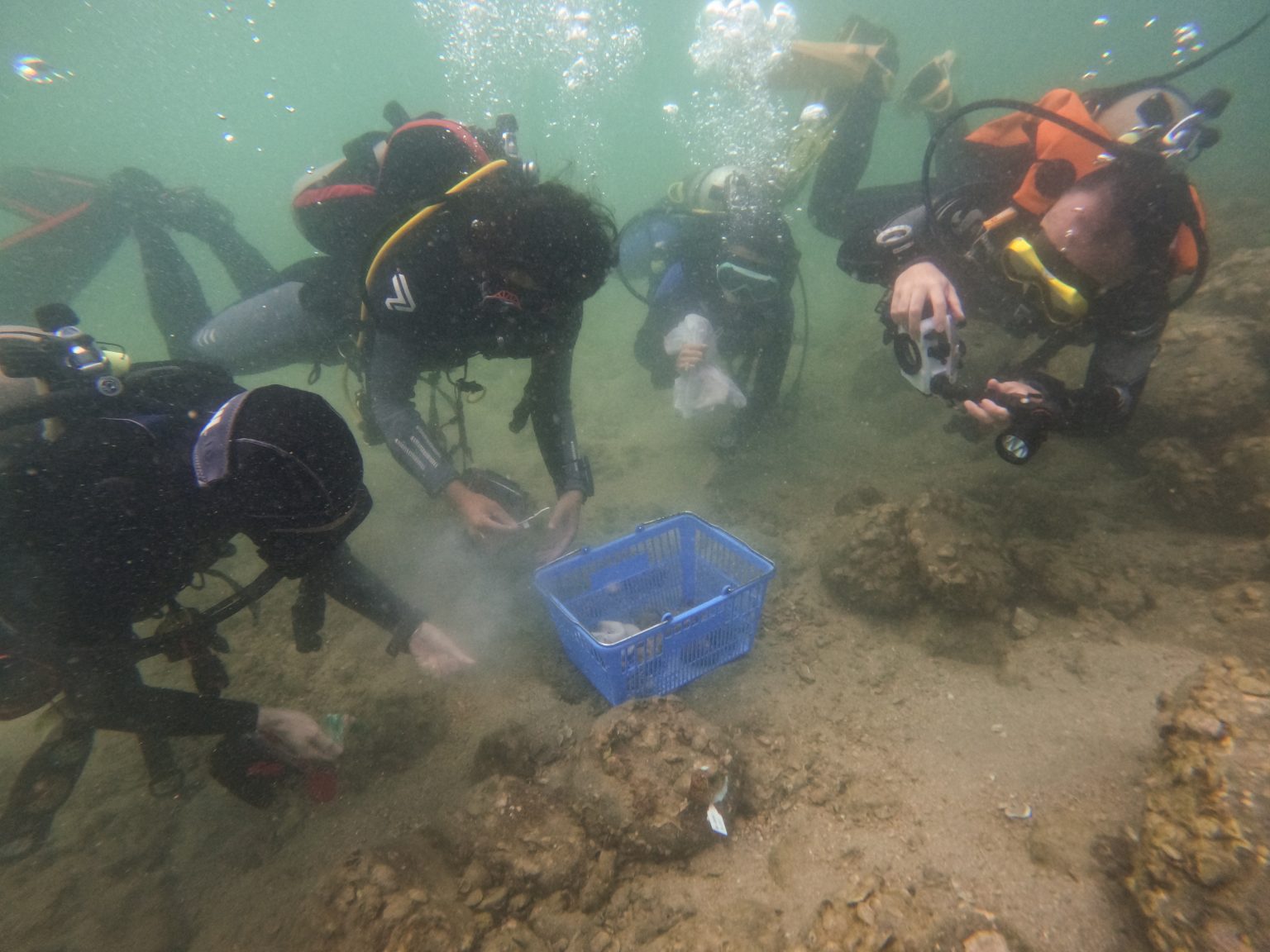

WWF-Hong Kong officially launches the “Reviving Our Corals” initiative with the Coral Academy, further expanding our coral restoration, marine conservation and education work.
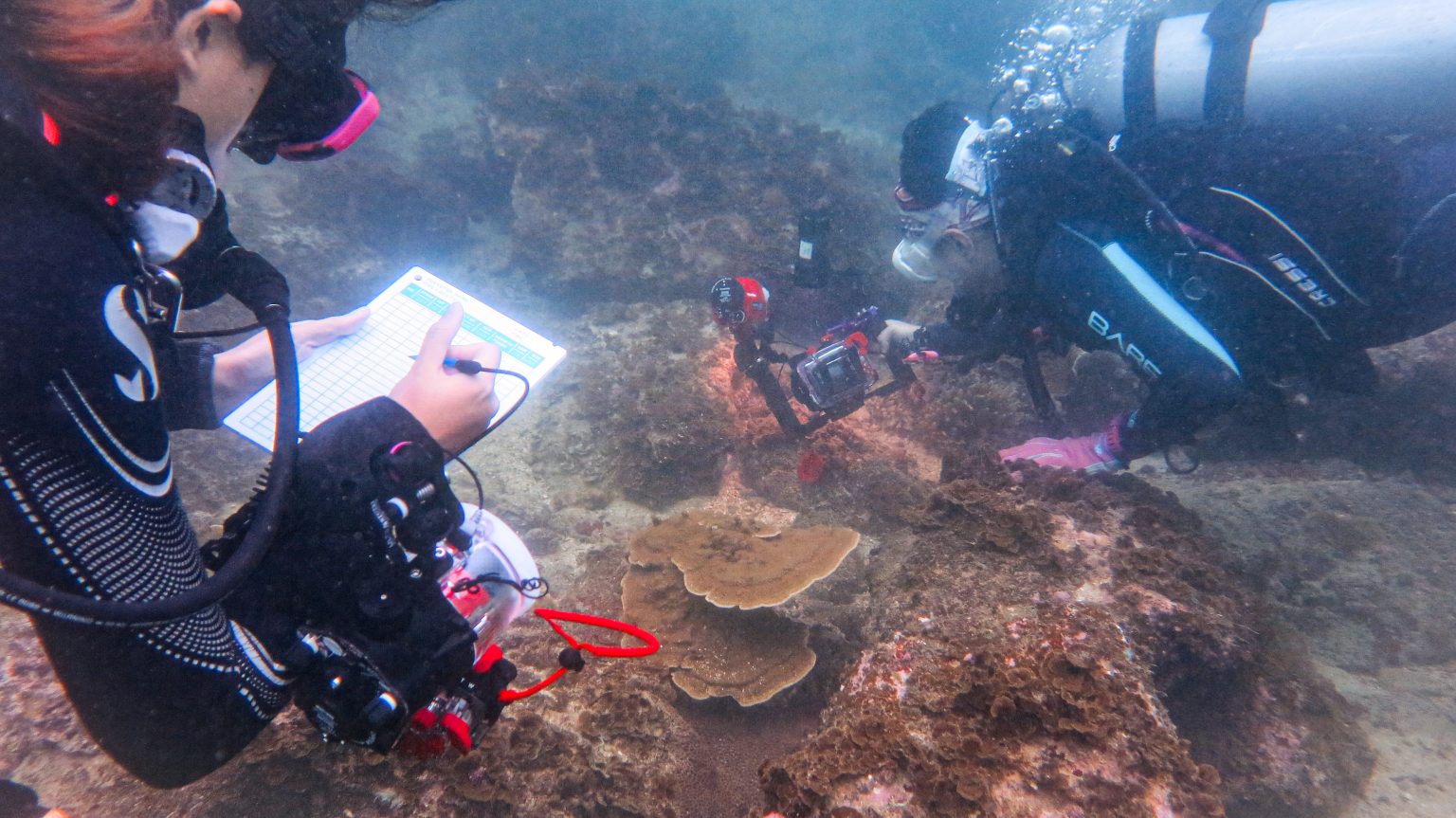
© Anniqa Law
Recreational scuba diving in Hong Kong is becoming more popular, and WWF is seeing a growing number of people taking diving certification courses, especially in the summer. There is an urgent need for divers to learn about conservation; a survey conducted by citizen scientists during the last diving season revealed that divers tend to underestimate their impact on the marine environment. We invited 100 diving instructors, instructor trainers, and course directors to formulate a set of scuba diving cue cards with conservation messages. WWF also initiated the first collaboration with a major water sports brand to promote an oceans-friendly attitude for water sport.

With the support of the Swire Trust, WWF and Coral Academy, The Chinese University has jointly launched a citizen science coral restoration project. WWF recruited 20 experienced divers to investigate the health conditions of coral communities, collect damaged coral fragments through tagging, and follow up with regular monitoring. This pilot project marked a foundation of the collaboration between WWF-HK and Coral Academy and facilitated science-based research and long term conservation strategies.
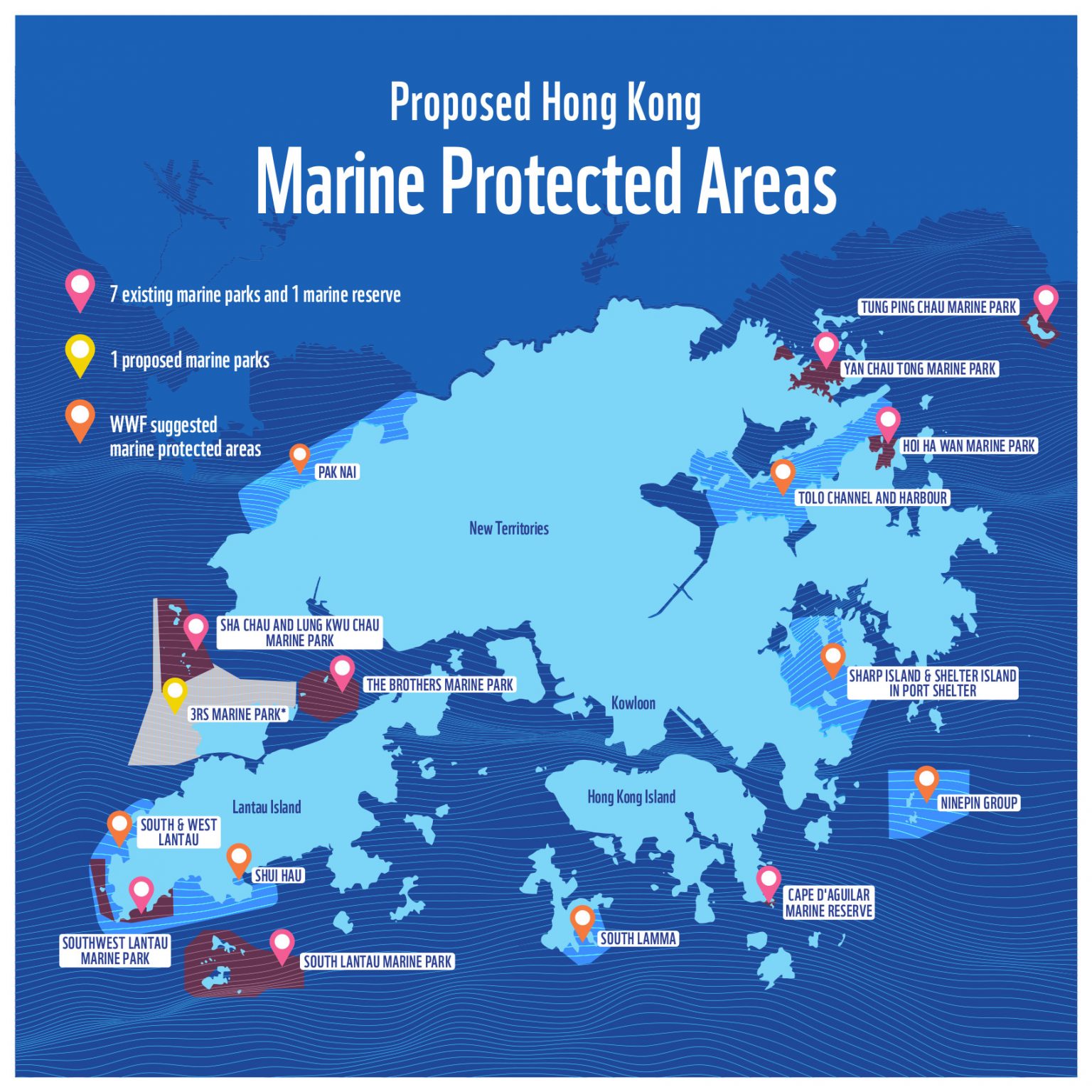
Seven of Hong Kong’s most sensitive marine areas are identified by WWF-Hong Kong along with local academics and experts. Sharp Island and Shelter Island (in Port Shelter), the Ninepin Group, and the Tolo Harbour and Channel are the top three areas for coral conservation.
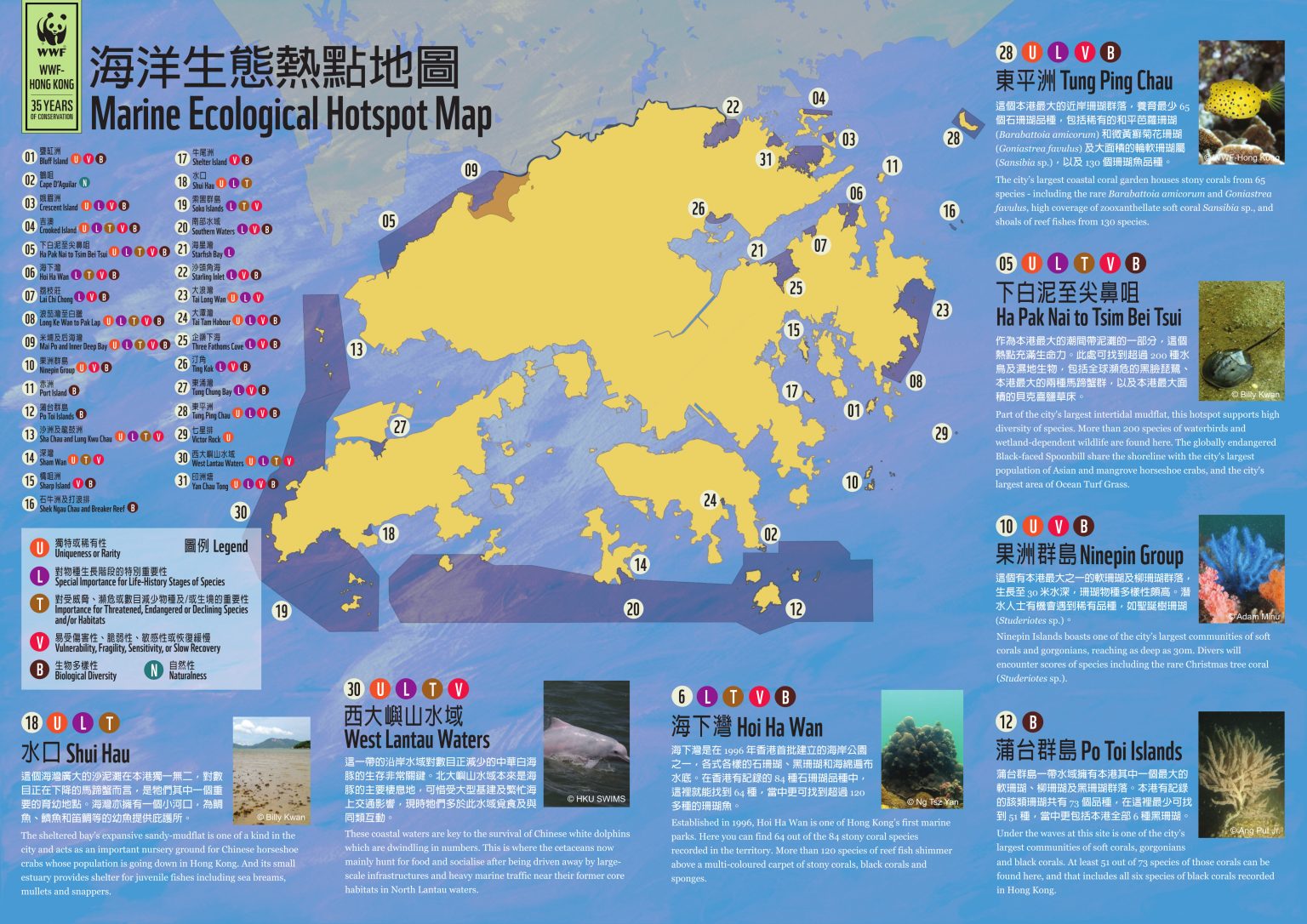
Following international standards, 31 marine ecological hotspots are selected by a panel of local marine biology experts brought together by WWF-Hong Kong. Two-thirds of these sites are home to coral communities.
Fifteen years after the completion of the Tolo Harbour Action Plan, research led by Prof Ang Put Jr reveals that Tolo Harbour coral communities have not recovered from damage inflicted decades earlier. Urgent and proactive conservation and restoration actions are deemed necessary.
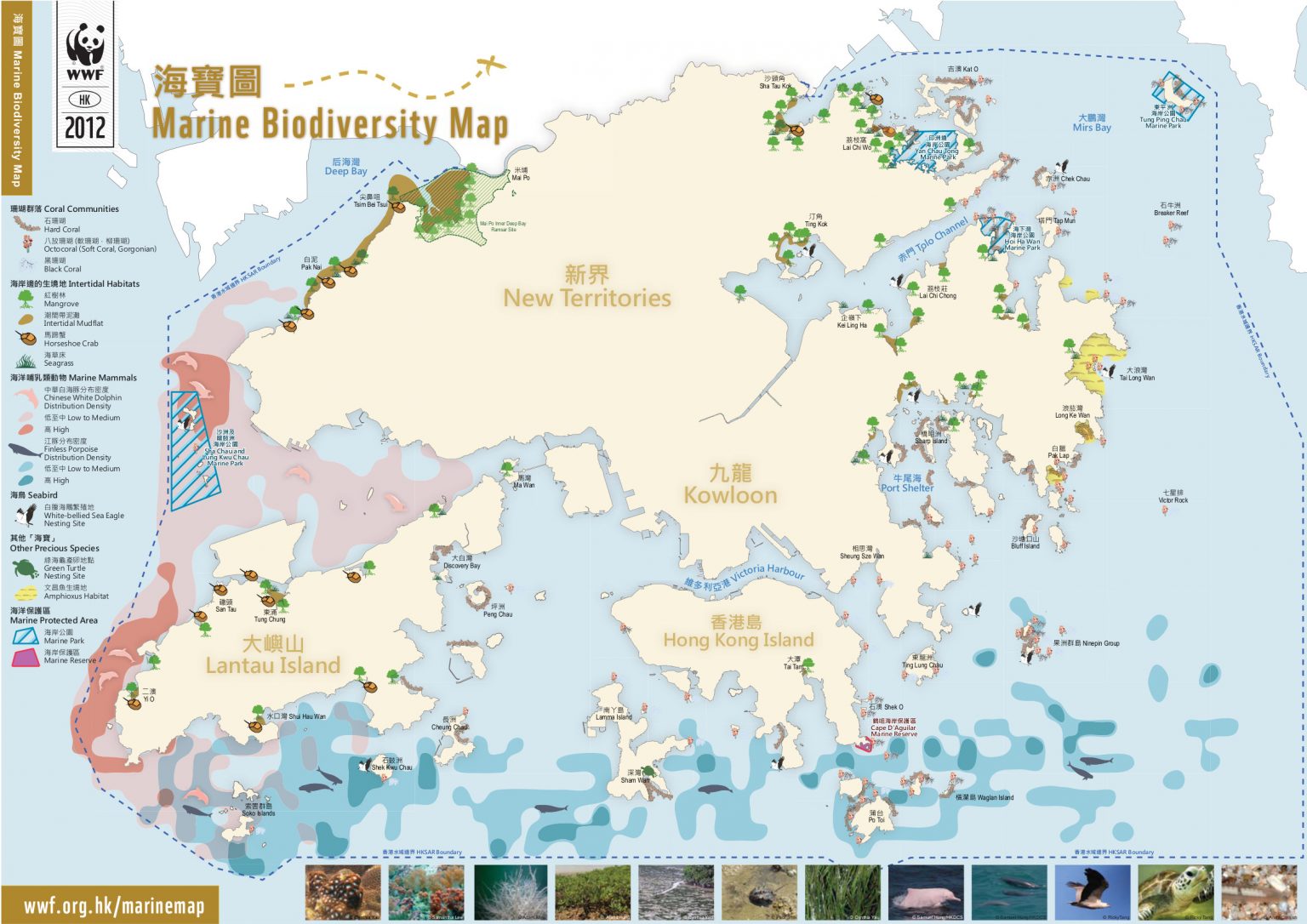
WWF launches Hong Kong’s first Marine Biodiversity Map, revealing the extent of Hong Kong’s ocean treasures and our rich biodiversity by providing a close-up look at the wide variety of marine habitats in our local waters. The map helps expand knowledge and promotes conservation of Hong Kong’s diverse marine environment through photos and interesting facts.

The Jockey Club HSBC WWF-Hong Kong Hoi Ha Marine Life Centre is established, providing a variety of marine education programmes and acting as a “coral conservation base camp”.
Hoi Ha Wan is designated as one of the first marine parks in Hong Kong.
WWF-Hong Kong takes a leading role in establishing marine parks in Hong Kong. WWF forms a Hoi Ha Wan Committee and begins working with the government to initiate a number of marine parks and reserve projects, including Hoi Ha Wan.
The Tolo Harbour and Channel once had over 70% coral coverage, but due to construction activities and severe pollution, this coverage fell to less than 1%. In the late 1980s, the government initiates a ten-year Tolo Harbour Action Plan to improve water quality.

Corals in Hoi Ha Wan were believed to be so abundant that villagers could make a living by selling lime, which was produced by burning coral skeletons in kilns. There are four lime kilns in the eastern shore of Hoi Ha Wan Marine Park, but only two remain relatively intact.
